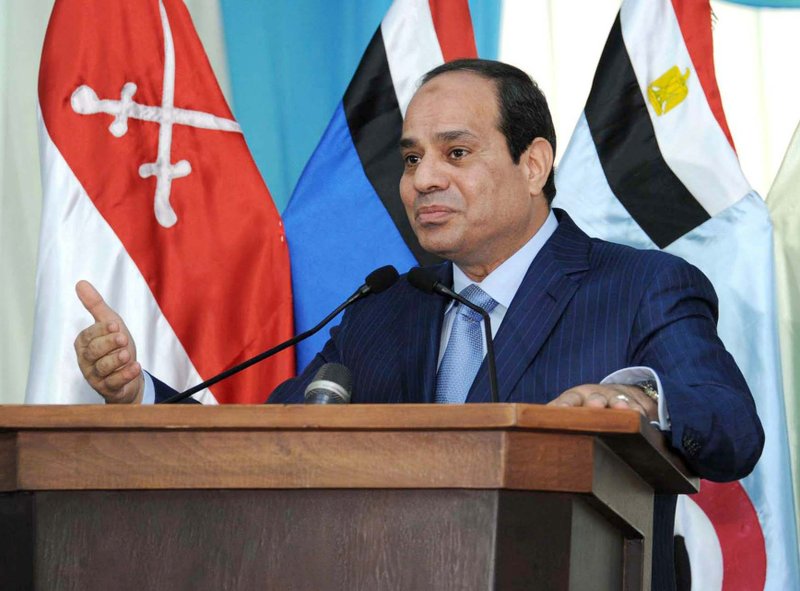BERLIN -- The United States and other countries Wednesday slammed the human-rights situation in Egypt at a United Nations meeting reviewing the country's record for the first time since the 2011 ouster of longtime autocrat Hosni Mubarak.
Human-rights groups said conditions in Egypt have worsened in recent years and warned that their work to highlight abuses is becoming increasingly difficult.
"We are deeply concerned with steps taken by Egypt that have resulted in violations of freedoms of expression, peaceful assembly and association deprived thousands of Egyptians of fair trial guarantees, and undermined civil society's role in the country," U.S. Ambassador Keith Harper told the Geneva-based U.N. Human Rights Council.
Harper called for the release of political prisoners and urged Egypt to "investigate excessive use of force by security forces, publicly release findings, and prosecute those identified as being responsible."
Hundreds of protesters were killed during clashes with security forces under the transitional military leadership after the popular uprising that toppled Mubarak, as well as since the first democratically elected president, Mohammed Morsi, took office in 2012.
Washington's criticism echoed that of many other countries, including Britain, Sweden, Germany, Turkey, Brazil, The Netherlands and Norway, who particularly faulted Egypt's crackdown on rights groups and journalists. They also criticized the harsh sentences -- including hundreds of death sentences -- meted out against government critics, who are routinely branded as traitors and spies.
Egypt's minister for transitional justice, Ibrahim el-Heneidy, defended his country's record, saying its new constitution was "a true victory for human rights and freedoms" and insisting that the government was committed to upholding international treaties it has signed.
Hesham Badr, deputy foreign minister of Egypt, said at the U.N. meeting that some of the comments by delegations were based on "misconceptions," lauding his government's efforts at legal and constitutional changes and commitment to international obligations.
Lashing out at the criticism, he added: "Egypt urges that the remarks [at the meeting] be based on correct and accurate information, because some of them appear to be dealing with conditions in a country other than Egypt in which we live. Maybe some here have the wrong address."
Badr said the government would consult with civil-society groups after the Monday deadline that authorities have set for the groups to register under a restrictive law that dates back to Mubarak's era. Rights groups view the deadline as directly affecting them and have said government policy toward their work has been unpredictable.
The Human Rights Council will publish a conclusion Friday containing nonbinding recommendations for ways in which Egypt can improve its human-rights situation. In most cases, countries that are reviewed immediately respond by noting which recommendations they accept or reject.
A Section on 11/06/2014
